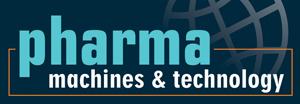
 By –
By –
Lokesh Patel
Founder Director
URL Aseptic Automation Inc
The pharmaceutical industry faces a multitude of challenges in ensuring the safety and integrity of its products, with one of the most significant being the implementation of pharmaceutical serialization. Serialization, the process of assigning a unique identifier to each pharmaceutical product, offers a robust solution to combat counterfeit drugs, enhance traceability, and comply with regulatory requirements. However, the successful implementation of serialization comes with its own technological hurdles. This article will explore these challenges and discuss strategies to overcome them.
Data Management and Integration
A core challenge in pharmaceutical serialization is managing the vast amount of data generated. Each serialized product requires a unique code, and this data must be integrated seamlessly across the supply chain, from manufacturing to distribution to dispensing. To address this challenge:
•Implement Comprehensive Data Management Systems: Invest in advanced data management systems capable of handling serialization data efficiently.
•Interoperability: Ensure that different stakeholders in the supply chain can exchange serialization data seamlessly by adopting industry-standard data formats and communication protocols.
Global Variability in Regulations
Pharmaceutical serialization regulations vary widely from one country to another. This inconsistency poses a significant hurdle for multinational pharmaceutical companies. Strategies to tackle this challenge include:
• Centralized Compliance Expertise: Establish a centralized team or system within the organization dedicated to monitoring and ensuring compliance with diverse global serialization regulations.
• Standardized Serialization Processes: Develop standardized serialization processes that can be adapted to meet specific regional requirements while maintaining global consistency.
Integration with Existing Systems
Many pharmaceutical manufacturers have legacy systems in place that may not be equipped to handle serialization requirements. The integration of serialization technology with existing systems can be complex. Solutions include:
• Phased Implementation: Implement serialization gradually, allowing time for systems to be updated or replaced as needed.
• Consult with Experts: Seek guidance from experts in serialization technology integration to ensure a smooth transition.
Data Security and Cybersecurity
Being sensitive and critical, serialization data is a prime target for cyberattacks and data breaches. To safeguard serialization data:
• Encryption and Authentication: Implement strong encryption and authentication measures to protect data in transit and at rest.
• Regular Security Audits: Conduct regular security audits and assessments to identify vulnerabilities and mitigate risks promptly.
Cost of Implementation
Implementing serialization technology requires significant financial investment. This includes the cost of acquiring and installing hardware, software and the training of personnel. To address the cost challenge:
• Long-Term Cost-Benefit Analysis: Consider the long-term benefits of enhanced safety, regulatory compliance, and supply chain efficiency that serialization offers when evaluating the initial investment.
• Collaboration with Partners: Explore opportunities for cost-sharing and collaboration with supply chain partners, such as wholesalers and pharmacies, to spread the financial burden.
Maintenance and Adaptation
Serialization technology is not static; it must evolve to stay ahead of counterfeiters and meet changing regulations. To ensure the sustainability of serialization efforts:
– Continuous Training: Provide ongoing training to staff on evolving serialization technologies and regulatory updates.
– Scalability: Choose scalable serialization solutions that can adapt to future needs without a complete overhaul.
Conclusion
Pharmaceutical serialization represents a crucial step in ensuring patient safety, regulatory compliance, and supply chain transparency. However, the successful implementation of serialization technology comes with a range of technological challenges that must be addressed strategically. Pharmaceutical companies can overcome these obstacles by investing in robust data management systems, standardizing processes, prioritizing data security, and reap the long-term benefits of serialization. Furthermore, staying agile and prepared to adapt to evolving technologies and regulations will be key to continued success in the dynamic landscape of pharmaceutical serialization.
URL Aseptic Automation Inc. [ www.urlautomation.com ] is an Engineering + Automation + Software company & hence end to end equipment like online/offline label/carton printing, inspection & aggregation units are readily available with line-level software integration for serialization requirements.
URL Aseptic Automation Inc
 We are leading service provider of industrial barcoding, product authentication and traceability solutions within compliance framework to combat counterfeit. With 12+ years of serialization experience today we comply to global guidelines like US DSCSA, EU FMD, Russia, China, Uzbekistan, Brazil, Saudi Arabia, Turkey, etc. by way of giving L1 to L5 solutions. Our product “Smart Track & Easy Trace” delivers Single Vendor solution for your business continuity.
We are leading service provider of industrial barcoding, product authentication and traceability solutions within compliance framework to combat counterfeit. With 12+ years of serialization experience today we comply to global guidelines like US DSCSA, EU FMD, Russia, China, Uzbekistan, Brazil, Saudi Arabia, Turkey, etc. by way of giving L1 to L5 solutions. Our product “Smart Track & Easy Trace” delivers Single Vendor solution for your business continuity.






